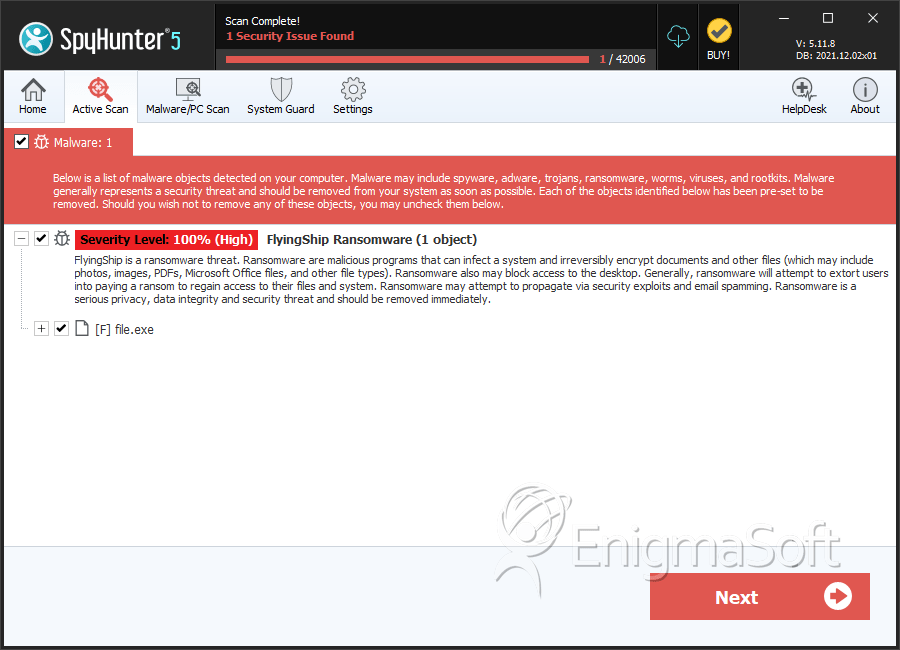FlyingShip Ransomware
The FlyingShip Ransomware is a new ransomware threat that has been identified by analysts in July 2020. According to researchers, the FlyingShip Ransomware is a variant of the CryptoWire Ransomware. Threats like the FlyingShip Ransomware usually aim to encrypt all the data present on the host and then demand a hefty sum in return for a decryption key. This is a very popular scheme.
Table of Contents
Propagation and Encryption
The FlyingShip Ransomware may be distributed via fraudulent emails. Often, cybercriminals opt to use this infection vector. The fake emails would either contain a corrupted link or a bogus attachment, which carries the payload of the threat. However, some cyber crooks opt to use other propagation methods such as corrupted advertisements, torrent trackers, bogus social media pages, fake copies of popular games or applications and many others. When the FlyingShip Ransomware infects your computer, it will scan and encrypt your files. Unfortunately, it is likely that all your images, audio files, videos, presentations, spreadsheets, documents, databases, archives, and many others will be locked via an encryption algorithm securely. Upon locking a file, the FlyingShip Ransomware will add a new extension – '.flyingship.' Interestingly enough, the FlyingShip Ransomware appends the extension before the original extension. For example, a file named 'stripey-cat.mp3' will be renamed to 'stripey-cat.flyingship.mp3.'
The Ransom Note
When the encryption process is done, the FlyingShip Ransomware will spawn a new window containing the attackers' ransom message. In the ransom note, the attackers ask to be paid $200 in Bitcoin. They claim that the users who cooperate and pay up will be provided with a functioning decryption product that will help them recover their files. The authors of the FlyingShip Ransomware demand to be contacted via email – ‘flyingship@mail2tor.com.'
There is not much point in paying the cyber crooks. It is likely that the FlyingShip Ransomware may be decryptable for free, so do not bother wasting your money. First, make sure you remove the FlyingShip Ransomware from your PC with the help of a reputable anti-virus solution. Then, try to recover your files using the free CryptoWire decryptor available online.
SpyHunter Detects & Remove FlyingShip Ransomware

File System Details
| # | File Name | MD5 |
Detections
Detections: The number of confirmed and suspected cases of a particular threat detected on
infected computers as reported by SpyHunter.
|
|---|---|---|---|
| 1. | file.exe | e5b5b0927401aa072d951c6946bfdd37 | 0 |

